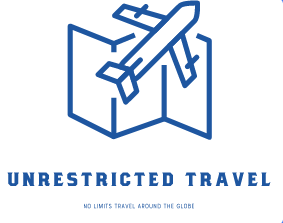When it comes to claiming a business trip, it can be challenging to determine if your journey qualifies as a business expense. The IRS has strict guidelines on when travel can be deductible. The trip must have a legitimate purpose and be normal for the company’s operations. Activities that are generally related to business, such as meetings with clients or guest speakers at conferences, are not considered business trips. However, there are certain circumstances when business travel can be claimed.

In order to be deductible, travel expenses must be reasonable and related to your job. These costs can include airfare, mileage, hotel, and food. Unlike entertainment, these expenses can be related to your work. For example, if you are traveling for a business meeting or conference, you are not technically traveling for pleasure. If your trip consists largely of business-related activities, such as sightseeing, you won’t be able to claim any entertainment costs, such as margaritas.
If you travel for business purposes, you can also claim lodging, meals, and other expenses incurred for conferences and meetings. This is true even if you are on a family vacation. If you’re traveling for work-related reasons, however, such as to meet with local clients or attend a conference, your expenses are usually deductible. But if you’re going to a seminar or workshop, you’ll still be able to claim travel expenses for your conference attendance.
Business travelers can also deduct all travel expenses, including transportation to and from their business destination. The only exception is meals, which are deductible to 50 percent of their actual cost. The other items can be deducted to the extent they are related to the business activity. When it comes to business-related travel, meeting local clients or attending a conference is considered to be work-related. But if you’re meeting a client in the same city as you do, the expense won’t qualify as a business expense.
The only exception to the rule that allows you to deduct entertainment costs is business travel for the purpose of expanding your client base. Nevertheless, the expenses should be related to your work and must be necessary to carry out your business. When you’re on a business trip, you’re not allowed to deduct personal expenses. But it is a business expense if your activities are only related to your job. So if you’re working remotely for an organization that requires you to be in a certain location, you should consider it a business expense.
While you should be cautious in the types of travel expenses you incur, there are some instances when travel can be an essential part of your business. The most common example is traveling for a conference. If you’re meeting a client in a foreign country, you may be able to deduct these expenses as a business expense. Similarly, business travelers can claim their personal travel as a business expense, if it is for a legitimate reason.
If you’re a freelancer, you may not be able to claim expenses for your spouse’s travel. In this case, you can deduct only the expenses that are related to your business. For example, if you’re travelling to meet clients, you can use your personal expenses to deduct the costs. But if you’re traveling for a personal purpose, the trip can’t be a business expense.
If you’re a freelancer, you can travel for business purposes. Whether you’re meeting a client or attending a conference, you can deduct business travel expenses as long as they are related to your business. You can also deduct your personal expenses if they’re related to your business. So, if you’re working from a remote location, you can take your work with you.
Business travel expenses can be deducted if the trip is solely for business purposes. If you’re traveling to meet clients, you can deduct the cost of lodging and food for yourself. This isn’t the same as traveling for leisure. If you’re traveling for work purposes, it’s better to deduct your travel costs in full. If you’re traveling to attend a conference, your expenses can also include the costs of your accommodation.





